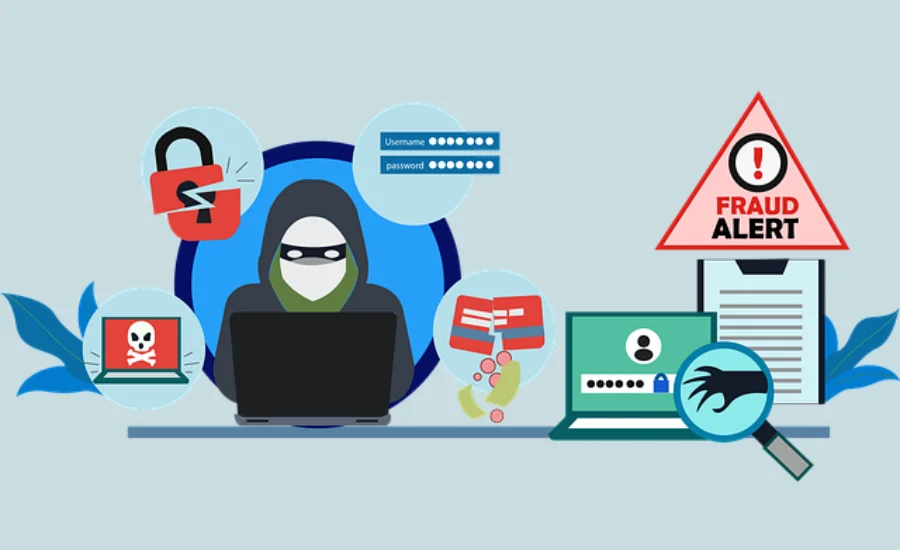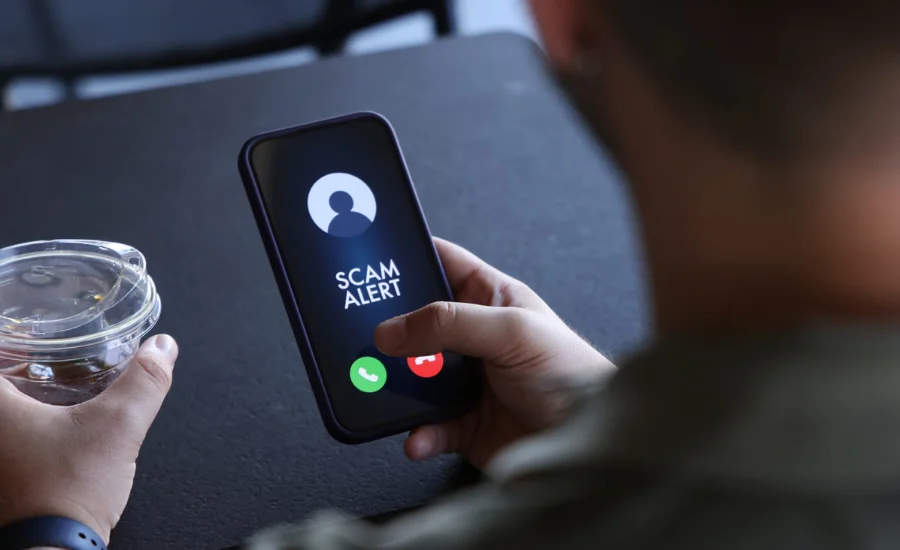215-274-0085 Protecting Yourself from Phone Scams
In today’s increasingly interconnected world, phone scams have become a persistent and growing threat. From robocalls to phishing schemes, fraudulent calls are becoming more sophisticated, targeting individuals from all walks of life. One of the phone numbers frequently reported for scam activities is 215-274-0085, but this is only one of many in a vast network of fraud. Understanding how to protect yourself from these scams is vital, as is knowing how to report and defend against such tactics.
This article will provide an in-depth exploration of the methods scammers use, the steps you can take to protect yourself, and the actions you can follow to report fraudulent activity. Whether you’re receiving suspicious calls from numbers like 215-274-0085 or looking to educate yourself about this alarming trend, this guide will equip you with the necessary knowledge and strategies to safeguard your personal and financial security.
Understanding the Nature of Phone Scams
What Is a Phone Scam?
A phone scam occurs when a fraudster uses the telephone system to deceive someone into giving away sensitive information, such as financial details or personal identification data. Scammers often pose as legitimate organizations, such as banks, government agencies, or well-known companies, and use psychological tactics to manipulate their victims into making quick decisions.
In many cases, the scam involves threats, such as claiming that you owe money to the IRS, or promises of financial rewards, such as winning a fake lottery. These scams are designed to exploit the trust and fear of the victim, often leading to devastating financial loss.
The rise of VoIP (Voice over Internet Protocol) technology has made it easier for scammers to mask their identity, allowing them to appear as though they are calling from a legitimate number, such as 215-274-0085. This practice, known as “spoofing,” makes it extremely difficult to trace the origin of the call and adds an additional layer of complexity to detecting fraudulent calls.
Common Types of Phone Scams
Fraudulent calls take on many forms, each targeting a specific vulnerability or exploiting a widely recognized system of trust. Below are some of the most prevalent types of phone scams:
- Phishing Scams: In these schemes, the scammer pretends to be a representative from a legitimate company, such as a bank or a tech firm. They often request sensitive information, like passwords or credit card numbers, by convincing the victim that their account has been compromised or that they need to verify their identity.
- IRS or Tax Scams: This is one of the most common types of fraud, where the scammer poses as an IRS agent, threatening legal action or arrest unless the victim pays a fabricated tax bill immediately. These calls often come from numbers like 215-274-0085, which appear local and legitimate, adding to the scam’s credibility.
- Lottery or Prize Scams: The fraudster informs the victim that they have won a lottery or prize but must first pay taxes or processing fees to claim it. In reality, there is no prize, and the payment is sent directly to the scammer.
- Robocalls: Automated calls that deliver pre-recorded messages are another avenue for scammers. While many robocalls are legitimate, such as appointment reminders or service alerts, others are designed to deceive, often offering fraudulent products or services or requesting personal information.
- Tech Support Scams: Here, the caller claims to be from a well-known tech company, warning the victim of a virus or issue with their computer. They may ask for remote access to “fix” the problem, which allows them to steal data or install malicious software.
- Charity Scams: After a natural disaster or during times of crisis, scammers may pose as representatives of a charitable organization, asking for donations. These scams exploit people’s goodwill and desire to help those in need.

How Scammers Manipulate Their Victims
Phone scammers rely on psychological manipulation to succeed. They create a sense of urgency, either through fear or excitement, which pressures the victim into acting quickly without thinking. For instance, a caller may claim that if the victim doesn’t provide immediate payment, they will face legal consequences or lose a significant sum of money.
Additionally, scammers often use convincing personal details to make their claims more credible. They may know the victim’s name, address, or even partial bank information, all of which they have gathered from previous data breaches or public records. This information helps to establish a false sense of trust.
Scammers can also use emotional triggers, such as sympathy or greed, to coerce victims. In charity scams, the caller may describe tragic circumstances and tug at the heartstrings, while in lottery scams, the idea of sudden wealth may cloud the victim’s judgment.
How to Protect Yourself from Phone Scams
Identifying a Fraudulent Call
Recognizing the signs of a scam is the first step in protecting yourself. While scammers are becoming more sophisticated, several red flags can help you identify a fraudulent call:
- Unexpected Calls: Be cautious of unsolicited calls, especially if they claim to be from a government agency or financial institution. Most legitimate organizations will not contact you this way without prior communication.
- Requests for Immediate Payment: Scammers often pressure victims to make immediate payments through unconventional methods such as gift cards, wire transfers, or cryptocurrency. Legitimate companies will not demand payment in these forms.
- Suspicious Caller ID: Although spoofing can make a scam call appear legitimate, be wary of unfamiliar numbers or local area codes that don’t seem right. Numbers like 215-274-0085, while appearing local, could be part of a larger scam operation.
- Personal Information Requests: Never provide sensitive information over the phone unless you are certain of the caller’s identity. If the call feels suspicious, hang up and contact the company directly using a verified number.
- Too Good to Be True: If a caller claims that you’ve won a large prize or lottery that you don’t remember entering, it’s likely a scam. Be cautious of offers that seem too good to be true.

Best Practices for Protecting Yourself
To protect yourself from becoming a victim of a phone scam, consider following these best practices:
- Screen Calls: If you don’t recognize the number, let it go to voicemail. Scammers rarely leave detailed messages, and you can always verify the legitimacy of a call later.
- Use Call-Blocking Apps: There are several apps available that can block potential scam calls or alert you to suspicious numbers. These apps use databases of known scam numbers to help filter fraudulent calls.
- Never Share Personal Information: Avoid giving out sensitive details such as your Social Security number, credit card information, or passwords over the phone unless you are absolutely sure who you are speaking with.
- Be Skeptical: If something feels off, trust your instincts. Don’t be afraid to ask questions or request documentation to verify the legitimacy of the call.
- Hang Up: If the caller starts making threats or putting pressure on you to act immediately, hang up. It’s always better to take time to assess the situation than to make a rushed decision under pressure.
Protecting Your Digital Footprint
Your digital presence can also make you a target for phone scams. Here are some ways to protect your online identity:
- Limit Personal Information on Social Media: Scammers often gather details about their victims from social media profiles. Keep your privacy settings high and avoid sharing too much personal information online.
- Monitor Your Accounts: Regularly check your bank and credit card statements for any suspicious activity. Early detection can prevent further financial damage.
- Use Two-Factor Authentication: Implementing two-factor authentication on your online accounts adds an extra layer of protection. Even if scammers obtain your password, they would still need access to a secondary code sent to your phone or email.
Reporting Phone Scams
What to Do If You Receive a Scam Call
If you receive a suspicious call, it’s essential to take the following steps to protect yourself and report the incident:
- Hang Up Immediately: As soon as you realize the call is a scam, hang up. Don’t engage with the caller or provide any information, even if they sound convincing.
- Document the Call: Write down any details about the call, including the phone number (such as 215-274-0085), the time of the call, and any information the scammer provided. This information will be useful when reporting the scam.
- Do Not Call Back: Calling the number back could lead to further attempts to scam you or provide the scammer with more information about your phone number.
How to Report Fraudulent Calls
Reporting scam calls is critical for helping law enforcement agencies track down and stop these criminals. Several organizations and agencies are responsible for investigating phone scams, and it’s important to know where to report them.
Reporting to the Federal Trade Commission (FTC)
In the United States, the FTC handles complaints related to fraudulent phone calls. You can report scams through the FTC’s official website or by calling their hotline. The FTC compiles this information into a database that helps track scam trends and identify the perpetrators behind these schemes.
Reporting to the Federal Communications Commission (FCC)
The FCC regulates communications in the U.S., including phone services. They take complaints related to robocalls, caller ID spoofing, and other fraudulent phone practices. You can file a complaint through the FCC’s website.
Reporting to Your Phone Carrier
Most major phone carriers have procedures for reporting scam calls. They can provide tools to block future calls from the same number and may share the information with other agencies to prevent further scams.
Local Law Enforcement
While local police may not be able to take direct action on scam calls, they can document the incident and provide advice on how to protect yourself. In some cases, your local police department may work with federal authorities on investigations involving large-scale phone scams.
How Reporting Helps Others
By reporting phone scams, you contribute to a broader effort to combat fraud. The information you provide helps authorities track patterns and potentially leads to the identification and arrest of scammers. It also helps prevent others from falling victim to the same scam.
When you report fraudulent calls, the agencies involved can use the information to update scam databases, improving tools such as scam-blocking apps and call-filtering services. These tools rely on up-to-date data to identify and block scam numbers like 215-274-0085, making them more effective in protecting consumers.

Defending Yourself from Future Scams
Using Call-Blocking and Filtering Technology
Technology is one of the most effective tools in defending against phone scams. Call-blocking apps and services provided by phone carriers can automatically block known scam numbers and filter out suspicious calls. These services analyze call patterns and use a database of reported scam numbers to protect users.
Popular Call-Blocking Apps
- Hiya: This app provides real-time spam detection and blocks known scam numbers. It also offers the option to report scam calls, helping other users avoid the same pitfalls.
- Nomorobo: Nomorobo automatically blocks robocalls and fraudulent numbers. It’s available for both landline and mobile phones and is known for its effectiveness in stopping spam calls.
- Truecaller: Truecaller is another popular app that identifies scam calls and allows users to block them. It also offers a community-based reporting feature, enabling users to share their experiences with specific numbers.
Carrier Services
Many phone carriers now offer built-in call-blocking services, often free of charge. Verizon’s “Call Filter,” AT&T’s “Call Protect,” and T-Mobile’s “Scam Shield” are examples of carrier-based services that help customers block fraudulent numbers like 215-274-0085.
Educating Yourself and Others
Knowledge is one of the most powerful defenses against phone scams. By staying informed about the latest scam tactics and sharing this information with friends, family, and colleagues, you can help others avoid becoming victims.
Staying Updated on Scam Trends
Scammers continuously evolve their tactics, making it essential to stay updated on the latest trends in phone fraud. Following news from trusted sources and monitoring websites such as the FTC’s scam alert page can provide valuable insights.
Sharing Information with Vulnerable Individuals
Older adults are often targeted by phone scams, as they may be less familiar with modern technology or more trusting of unsolicited calls. Sharing information about common scams and how to protect against them can help protect vulnerable populations from falling victim.
Legal Protections and Recourse
There are legal protections in place to help individuals defend themselves from phone scams. The Telephone Consumer Protection Act (TCPA) is a U.S. law that regulates telemarketing calls, robocalls, and other forms of unsolicited communication. Under the TCPA, individuals may be entitled to compensation if they receive certain types of illegal calls.
If you’ve fallen victim to a scam, it’s essential to know your legal rights. In some cases, you may be able to recover lost funds through your bank or credit card company, especially if you acted quickly in reporting the fraud. Legal assistance may also be available for more complex cases, where the scammer can be identified and prosecuted.
Conclusion
Phone scams are a pervasive and evolving threat, but with awareness and the right tools, you can protect yourself and others from falling victim. Numbers like 215-274-0085 are just a small part of a larger network of scammers who use sophisticated tactics to deceive and manipulate. By staying vigilant, utilizing call-blocking technologies, and reporting suspicious activity, you can play a crucial role in the fight against phone fraud.
As technology continues to evolve, so too will the strategies used by scammers. Staying informed, educating others, and taking proactive steps to protect your personal and financial information are essential in this ongoing battle against fraudulent calls.





